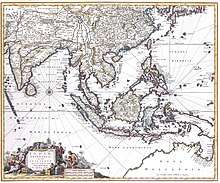
Aceh, officially the Province of Aceh, is the westernmost province of Indonesia. It is located on the northern end of Sumatra island, with Banda Aceh being its capital and largest city. It is bordered by the Indian Ocean to the west, Strait of Malacca to the northeast, as well bordering the province of North Sumatra to the east, its sole land border, and shares maritime borders with Malaysia and Thailand to the east, and Andaman and Nicobar Islands of India to the north. Granted a special autonomous status, Aceh is a religiously conservative territory and the only Indonesian province practicing Sharia law officially. There are ten indigenous ethnic groups in this region, the largest being the Acehnese people, accounting for approximately 70% of the region's population of about 5.5 million people in mid-2023. Its area is comparable to Croatia or Togo.
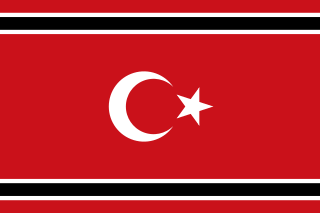
The Free Aceh Movement was a separatist group seeking independence for the Aceh region of Sumatra, Indonesia. GAM fought against Indonesian government forces in the Aceh insurgency from 1976 to 2005. Estimates of the death toll total over 15,000 people killed.

The Aceh War, also known as the Dutch War or the Infidel War (1873–1904), was an armed military conflict between the Sultanate of Aceh and the Kingdom of the Netherlands which was triggered by discussions between representatives of Aceh and the United States in Singapore during early 1873. The war was part of a series of conflicts in the late 19th century that consolidated Dutch rule over modern-day Indonesia.

The Communist Party of Indonesia was a communist party in the Dutch East Indies and later Indonesia. It was the largest non-ruling communist party in the world before its violent disbandment in 1965. The party had two million members in the 1955 elections, with 16 percent of the national vote and almost 30 percent of the vote in East Java. During most of the period immediately following the Indonesian Independence until the eradication of the PKI in 1965, it was a legal party operating openly in the country. Accused of responsibility for the 1965 army-led coup attempt, the party was banned by General Suharto in March 1966.
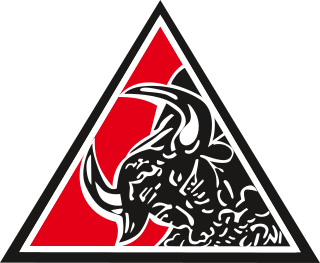
The Indonesian National Party was the name used by several nationalist political parties in Indonesia from 1927 until 1973. The first PNI was established by future President Sukarno. After independence, the new PNI supplied a number of prime ministers, and participated in the majority of cabinets in the 1950s and 1960s. The party was fused into the Indonesian Democratic Party in 1973. In the years following the reforms of the late 1990s, a number of parties claiming to be the continuation of previous PNIs stood in elections, but gained only a handful of seats.
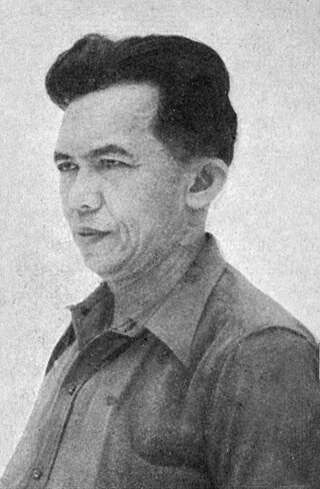
Tan Malaka was an Indonesian teacher, Marxist, philosopher, founder of Struggle Union and Murba Party, independent guerrilla and spy, Indonesian fighter, and national hero. Tempo credited him as "Father of the Republic of Indonesia".

Munawar Musso was an Indonesian revolutionary and political figure who was the leader of the Communist Party of Indonesia and one of the key figures in the 1948 Madiun affair.

Guided Democracy, also called the Old Order, was the political system in place in Indonesia from 1959 until the New Order began in 1966. This period followed the dissolution of the liberal democracy period in Indonesia by President Sukarno, who centralized control in the name of political stability. He claimed to have based the system based on the traditional village system of discussion and consensus, which occurred under the guidance of village elders. On the national level, however, this meant centralized rule under Sukarno: martial law, a massive reduction in civil liberties and democratic norms, and the Indonesian National Armed Forces and Communist Party of Indonesia acting as major power blocs.

The insurgency in Aceh, officially designated the Rebellion in Aceh by the Indonesian government, was a conflict fought by the Free Aceh Movement (GAM) between 1976 and 2005, with the goal of making the province of Aceh independent from Indonesia. The aftermath of a strong military offensive in 2003 and the 2004 Indian Ocean earthquake and tsunami brought a peace agreement and an end to the insurgency.

The Madiun Affair, known locally as the Communist Party of Indonesia rebellion of 1948, was an armed conflict between the government of the self-proclaimed Republic of Indonesia and the left-wing opposition group Front Demokrasi Rakyat during the Indonesian National Revolution. The conflict began on September 18, 1948, in Madiun, East Java, and ended three months later when most FDR leaders and members were detained and executed by TNI forces.

Sjafruddin Prawiranegara was an Indonesian statesman and economist. He served in various roles during his career, including as head of government in the Emergency Government of the Republic of Indonesia, as Minister of Finance in several cabinets, and as the first Governor of Bank Indonesia. Sjafruddin later became the prime minister of the Revolutionary Government of the Republic of Indonesia, a shadow government set up in opposition to the country's central government.

Large-scale killings and civil unrest primarily targeting members and supposed sympathizers of the Communist Party of Indonesia (PKI) were carried out in Indonesia from 1965 to 1966. Other affected groups included alleged communist sympathisers, Gerwani women, trade unionists, ethnic Javanese Abangan, ethnic Chinese, atheists, so-called "unbelievers", and alleged leftists in general. According to the most widely published estimates at least 500,000 to 1 million people were killed, with some estimates going as high as two to three million. The atrocities, sometimes described as a genocide or a politicide, were instigated by the Indonesian Army under Suharto. Research and declassified documents demonstrate the Indonesian authorities received support from foreign countries such as the United States and the United Kingdom.

The Acoma Party was a communist party in Indonesia. It evolved out of the Young Communist Force. Acoma was converted into Partai Acoma on 8 August 1952. Acoma/Partai Acoma was led by Ibnu Parna.
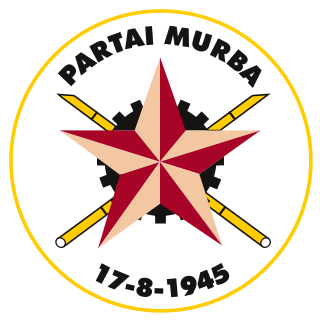
Murba Party was a 'national communist' political party in Indonesia. The party was founded by Tan Malaka, Chairul Saleh, Sukarni and Adam Malik in 1948. The history of the party was largely intertwined with that of the powerful Communist Party of Indonesia (PKI). Initially relations between PKI and the Murba Party were fluid, but gradually the two parties developed into each other's arch-enemies. The Murba Party continued to exist under the New Order, but was merged into the Indonesian Democratic Party in 1973.

The Central All-Indonesian Workers Organization was the largest trade union federation in Indonesia. Founded during the period of the country's independence in the late 1940s, the federation grew rapidly in the 1950s. It was initially formed with loose connections to the Communist Party of Indonesia (PKI) and with members from other parties, but over time, the PKI became dominant in the organisation. With the introduction of President Sukarno's guided democracy in the late 1950s, SOBSI was formally recognised and given a place in the national decision-making structures. In the 1960s, SOBSI came into conflict with the Army, whose officers controlled the country's state enterprises. After the 1965 coup that subsequently produced Suharto's New Order regime, SOBSI was declared illegal, its members killed and imprisoned and most of the leadership executed.
Muhamad Samikidin was an Indonesian politician. He served as the First Secretary of the Aceh Committee of the Communist Party of Indonesia (PKI).

The East Sumatra revolution, also known as the East Sumatra social revolution, began on 3 March 1946. Across 25 "native states", many sultanates were overthrown and mass killing of members of the aristocratic families were performed by armed pergerakan groups. To the opportunistic pergerakan militants, the revolutionary movement was seen as one of the means for East Sumatra to be freed from colonial overlordship and to join the larger Indonesian National Revolution. Participants of the revolution were believed to be provoked by leaders to kill aristocrats and create violence. These belligerents had three prime objectives: to eliminate the sultans and aristocrats, to seize their wealth and to eliminate the region's feudal social structure. The revolution brought about the formation of the State of East Sumatra, which was dissolved when the region became part of the Indonesian republic.

Wikana was an Indonesian minister and independence leader. He was one of the youths who forced Sukarno and Hatta to declare independence immediately after the surrender of the Japanese. He was the first Indonesian Minister of Youth and Sport. He was a member of the Indonesian Communist Party. Sometime after the 1965 coup d'état attempt, he was arrested and went missing. It is supposed that he was one of the assassinated in the Indonesian mass killings of 1965–66.
Local elections were held in parts of Indonesia in the second half of 1957 to elect provincial and regency and city councils. The Communist Party of Indonesia won a larger share of the vote than it had in the 1955 legislative election, the only major party to do so. The PKI's success, and the declining or stagnant support for other parties, caused concern that the PKI might dominate the planned 1959 national legislative elections, one reason these did not take place.

Mr. Sutan Mohammad Amin Nasution, also known by his birth name Krueng Raba Nasution, was an Indonesian lawyer and politician with an Acehnese–Mandailing background.
